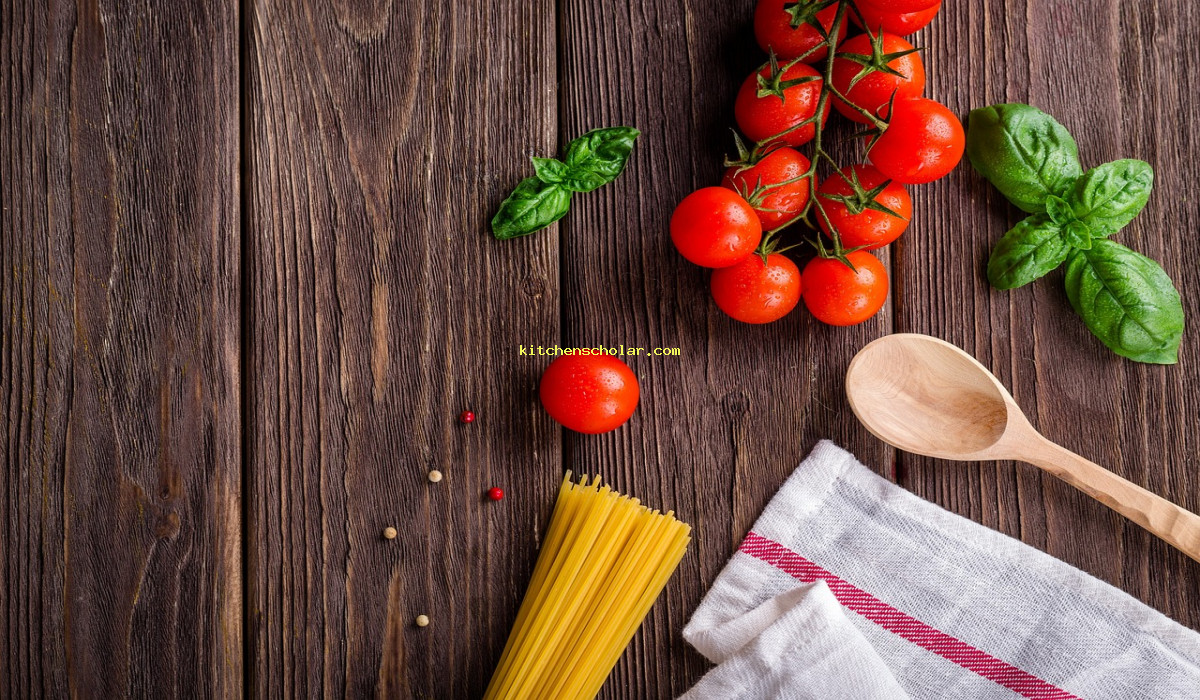Are Kitchen Sponges Living Creatures? Kitchen Scholar Answers with Scientific Explanation!. Curious about the life of kitchen sponges?
Are Kitchen Sponges Living Creatures
As a kitchen scholar, I can assure you they are not alive, but they do play an important role in keeping your dishes clean. Learn more about these versatile cleaning tools and how to properly care for them.
Are Kitchen Sponges Living Creatures? Kitchen Scholar Answers with Scientific Explanation!. do play an Are Kitchen Sponges Living Creatures? Kitchen Scholar Answers with Scientific Explanation Are Kitchen Sponges Living Creatures!
Kitchen Sponges Can Have More Bacteria Than Lab Petri Dishes, Researchers Say
Are Kitchen Sponges Living Creatures? Kitchen Scholar Answers with Scientific Explanation! Kitchen Sponges Can Have More Bacteria Than Lab Petri Dishes, Researchers Say Video Are Kitchen Sponges Living Creatures? Kitchen Scholar Answers with Scientific Explanation!
Are Kitchen Sponges Living Creatures
Learn about the surprising truth behind kitchen sponges and whether or not they are actually alive, from a kitchen scholar.
Are Kitchen Sponges Alive? The Truth Revealed by a Kitchen Scholar
Are kitchen sponges alive? This is a question that many people have been asking for a long time. After all, kitchen sponges are often used to clean up dirt and bacteria from dishes, surfaces, and more. But is there more to these seemingly simple cleaning tools than meets the eye? In this blog post, we will explore the answer to this intriguing question and uncover the truth about kitchen sponges. Join us on this journey as we dive into the world of kitchen sponges and discover if they are truly alive.
The Origins of Kitchen Sponges
Kitchen sponges have been around for thousands of years, with evidence of their use dating back to ancient civilizations. Initially, the sponges were made from natural materials such as seaweed, grass, and pieces of coral. However, in modern times, synthetic materials have replaced these natural options, making kitchen sponges more durable and long-lasting. But despite these changes, the basic function of kitchen sponges remains the same – to clean and remove dirt and debris from various surfaces.
The Composition of Kitchen Sponges
To understand whether kitchen sponges are alive or not, it is essential to first understand their composition. Most kitchen sponges today are made of synthetic materials such as polyester, polyurethane, and nylon. These materials are soft, porous, and absorbent, making them ideal for cleaning and scrubbing Are Kitchen Sponges Living Creatures. The cells of these materials can hold a significant amount of liquid, making them great for wiping up spills and absorbing water.
The Role of Bacteria
One of the main reasons people wonder if kitchen sponges are alive is due to the presence of bacteria on them. Research has shown that kitchen sponges can harbour some of the most harmful and resistant bacteria, including E. coli and salmonella. This is because kitchen sponges provide an ideal environment for bacterial growth – they are moist, warm, and contain nutrients from food particles. However Are Kitchen Sponges Living Creatures, the presence of bacteria does not necessarily mean that kitchen sponges are alive. Bacteria are microorganisms that are too small to be considered alive in the traditional sense.
Survival Without a Host
Another aspect that leads people to wonder if kitchen sponges are alive is their ability to survive without a host. Unlike most living organisms, kitchen sponges can survive for extended periods without any external source of food or water.

This is because their porous composition allows them to retain moisture for a long time. However, this does not indicate that kitchen sponges are alive. In fact, once a kitchen sponge dries out, the bacteria within it will no longer be able to survive. This further confirms the argument that kitchen sponges cannot be considered alive.
The Role of Humans
While kitchen sponges may not be alive in the traditional sense Are Kitchen Sponges Living Creatures, they do have a vital role to play in our lives. They help us clean and maintain a hygienic environment, making them indispensable tools in the kitchen. However, it is crucial to note that we must also take proper care of our kitchen sponges to prevent the growth and spread of harmful bacteria.
How to Keep Your Kitchen Sponge Clean
To ensure that your kitchen sponge is clean and free of bacteria Are Kitchen Sponges Living Creatures, follow these simple tips:
– Rinse your sponge regularly with hot water after each use.
– Squeeze out any excess water and store it in an upright position to allow it to dry properly.
– Disinfect your sponge regularly by soaking it in a solution of water and bleach for five minutes.
– Replace your sponge every week or two, depending on how frequently it is used.
– Do not use your kitchen sponge for cleaning up raw meat or other potentially contaminated areas.
By following these guidelines, you can keep your kitchen sponge clean and free of harmful bacteria, making it a safe and effective cleaning tool.
The Myth of Microwaving Sponges
You may have heard that microwaving a kitchen sponge can kill bacteria and make it safe to use again. While microwaving sponges can kill some bacteria, it is not an effective or safe method of disinfection. Microwaving sponges can cause them to catch fire, produce toxic fumes, and even melt the microwave itself. So, it is best to avoid trying this method and stick to regular disinfection and replacement instead.
The Case For and Against Using Kitchen Sponges
While kitchen sponges may seem like a basic and harmless tool, there are some arguments for and against their use. The main argument for using kitchen sponges is their effectiveness in cleaning and removing dirt and debris. However, as we have discussed, sponges can also harbour bacteria Are Kitchen Sponges Living Creatures, making them potential sources of contamination. Additionally, kitchen sponges are not environmentally friendly as they contribute to plastic pollution. Alternatives such as dishcloths and brushes may be more eco-friendly options for cleaning.
The Future of Kitchen Sponges
With the growing awareness of environmental issues and the impact of plastic pollution, there has been a rise in eco-friendly alternatives to kitchen sponges Are Kitchen Sponges Living Creatures. Some options include reusable washcloths made of bamboo and natural loofahs. These alternatives are not only more environmentally friendly but also more hygienic than traditional kitchen sponges. As consumers become increasingly conscious of their choices, it is likely that we will see a shift towards these more sustainable options in the future.
Conclusion: Are Kitchen Sponges Alive?
After exploring the composition, role, and potential dangers of kitchen sponges, it is clear that they cannot be considered alive. While they do harbour bacteria, they are not living organisms and cannot survive without a host. However, this does not mean that we should not take proper care of our kitchen sponges and ensure that they are clean and free of harmful bacteria.

By following proper hygiene practices and considering eco-friendly alternatives, we can continue to benefit from the convenience and effectiveness of kitchen sponges without compromising on our health and the environment.
Are Kitchen Sponges Living Creatures
Curious about the life of kitchen sponges? As a kitchen scholar, I can assure you they are not alive, but they do play an important role in keeping your dishes clean. Learn more about these versatile cleaning tools and how to properly care for them.. Kitchen Are Kitchen Sponges Living Creatures? Kitchen Scholar Answers with Scientific Explanation!
Are kitchen sponges alive?
There is a common misconception that kitchen sponges are alive, but they are actually not. These sponges are made of artificial materials such as cellulose, polyester, and polymer foam. Although they may contain bacteria and microorganisms, they are not considered living organisms.
What is a kitchen scholar?
A kitchen scholar is someone who is extremely knowledgeable about cooking, baking, and all things related to the kitchen. They have a deep understanding of different ingredients, cooking techniques, and can come up with creative and delicious recipes on their own.
Can kitchen sponges be cleaned?
Yes, kitchen sponges can be cleaned and should be cleaned regularly to prevent the growth of bacteria. The best way to clean a kitchen sponge is to soak it in a mixture of hot water and vinegar for 5-10 minutes, and then rinse it thoroughly with hot water and let it air dry.
How often should you replace a kitchen sponge?
The lifespan of a kitchen sponge depends on how often it is used and how well it is maintained. On average, a kitchen sponge should be replaced every 2-4 weeks. If it starts to smell, looks dirty, or falls apart, it is time to replace it.
What makes a good kitchen sponge?
A good kitchen sponge should be absorbent, durable, and easy to clean. It should also have a good scrubbing capability without scratching surfaces. Natural sponges, such as loofah and cellulose, are considered better alternatives to synthetic sponges as they are biodegradable and less likely to harbor bacteria.
